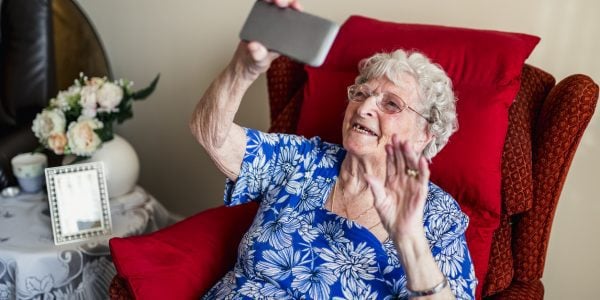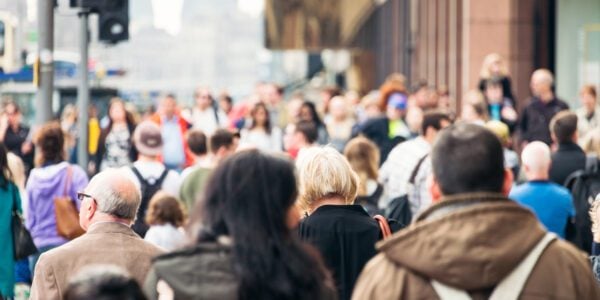In response to a survey by Beyond Us and Them, 81% of Black British people and 73% of British Muslims said they had faced discrimination in the past month.
As part the Nuffield Funded research project Social cohesion in the context of Covid-19, researchers at the University of Kent and the Belong Network studied survey data on social relations in Britain, focusing particularly on the attitudes and experiences of Black, Muslim and White respondents. The report provides evidence for the importance of intersectionality in understanding experiences of discrimination.
Intersectionality is the idea that greater levels of discrimination result from the overlap of social identities. The report suggests that vulnerability to discrimination becomes cumulatively greater the more protected characteristics a person has. According to the findings, younger Black women (89%) and younger Muslim women (85%) are most likely to report experiencing discrimination of some kind.
Social contact between people from different backgrounds was associated with a reduction in prejudice and researchers observed that the quality of interactions was significantly more important than the number of interactions in tackling discrimination. The authors called for more support to build meaningful connections between people from different backgrounds and encourage people to listen to the views and experiences of others.
They also recommend that education and youth services provide more opportunities to form connections with other young people from different backgrounds and for local funding to support spaces, programmes and activities that promote social mixing.
How widespread is discrimination in Britain?
- Four fifths (81%) of Black respondents said they experienced some form of discrimination in the last month, compared with about half (53%) of White and three quarters (73%) of Muslim respondents.
- Muslim women were significantly more likely to report experiences of discrimination than Muslim men (77% vs 67%), and White women were more likely to report discrimination than White men (58% vs 46%).
- Among Black respondents, men and women reported experiencing the same high levels of discrimination (81%).
- Levels of reported discrimination among younger age groups were significantly higher than among older age groups, with 78% of 18-24-year-olds reporting at least one experience of discrimination, compared with 44% of those aged 45+.
- Younger Black women (89%) and younger Muslim women (85%) were most likely to report experiences of discrimination.
How is discrimination perceived?
- People generally view discrimination as being a serious concern.
- Discrimination on the basis of race or ethnicity is viewed as the most serious form of discrimination; discrimination on the basis of age is seen as the least serious.
- Women of all ethnicities view racial discrimination as being more serious than do men.
- People regard discrimination they are likely to be subject to more seriously than other forms.
Professor Dominic Abrams, director of the Centre for the Study of Group Processes at the University of Kent, said: “These findings show that we still have a long way to go defeat prejudice and discrimination in our society. That there is discrimination is not a surprise, but the extent of discrimination reported by Black and Muslim people in Britain today, must give us pause for thought, as should the fact that the heaviest burden of discrimination falls on young, Black and Muslim women.”
Jo Broadwood, CEO of Belong – The Cohesion and Integration Network, said: “These findings demand that we redouble efforts to tackle issues of discrimination and prejudice in our society. We know already that fostering positive social connections between people from different backgrounds can be a powerful force in building understanding and breaking down prejudice and mistrust. This research points towards the need to focus on high quality interactions, and how important it is to listen and learn from those who have lived experience of discrimination and prejudice. This requires us to turn our back on the culture wars mentality. Instead, we need to create spaces and public dialogue for people to feel able to genuinely listen and learn about others’ experiences, particularly those that are different from their own.”
Alex Beer, Welfare Programme Head at the Nuffield Foundation, said: “Racism, prejudice and discrimination take a real toll on peoples’ lives. This research shows that even during the pandemic when social distancing rules were still in place, very high percentages of Black and Muslim people in Britain were experiencing discrimination. Systematic racial discrimination has harmful effects, including on people’s mental health and affects labour market outcomes. As a society, we need to redouble our commitment to tackling discrimination, increasing diversity in public life and proactively tackling the barriers to inclusion for minority communities and under-represented groups.”























































